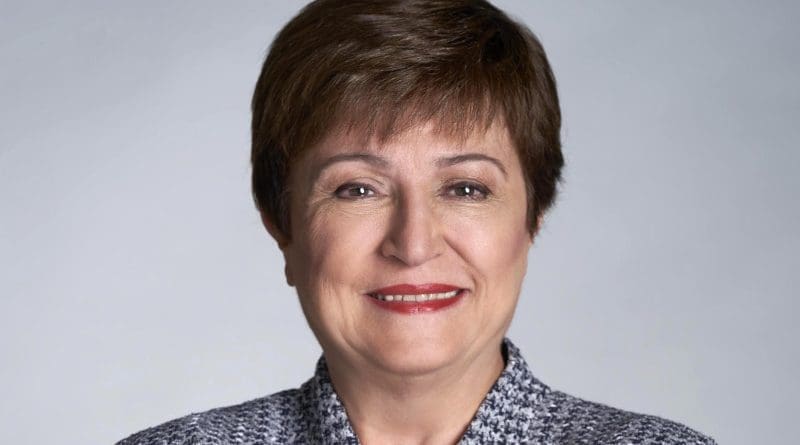Global Challenges Facing ASEAN And Policy Priorities – Speech
Thank you, Excellency Hun Sen, I am honored to be with you today.
May I start by commending you and the people of Cambodia for the remarkable achievements of the last two decades. You took the country from the darkest moment in its history to now being one of the fastest-growing economies in the world, dramatically reducing poverty, improving standards of living and aspiring to be an upper-middle income country by the end of this decade.
I would like to touch on three points: the global economic outlook; how ASEAN features in this outlook; and policy priorities.
First, the global outlook. In the last three years—a relatively short period of time—we have been hit by shock upon shock upon shock: a global pandemic, a war in Europe, and a cost-of-living crisis. And they have led to a rather gloomy picture for the world economy—for this year and especially for next year.
The dual impact of supply chain interruptions from the pandemic, and the very rapid increase of energy and food prices, has created stubbornly high inflation, leading to a tightening of financial conditions and an abrupt slowdown in global growth from 6 percent in 2021 to 3.2 percent in 2022. We project 2.7 percent for 2023, but with a 25 percent probability that growth may actually fall below 2 percent.
While we look at this gloomy picture, even more troubling is the trend towards increased fragmentation—at a time when we need each other the most. And I am very concerned that we may be sleepwalking into a world that would be poorer and less secure as a result.
That takes me to my second point and a more positive turn in the story, a relative bright spot on a dark horizon. ASEAN is projected to grow at 5 percent this year and 4.7 percent next year, well above the global average.
This is because of steady progress on reforms and the tremendous integration of their economies. That is why I very much look to ASEAN to be a key player in helping to prevent fragmentation, and in actually encouraging the world to stay on the right path.
Because, Mr. Prime Minister, as you said in your opening remarks, we must go together. Together we are much stronger.
At the same time, even as we look at the promise of ASEAN, there is no room for complacency. We also have to recognize that these countries have been hit by the scarring from the pandemic, and now by the slowing down of the global economy. It is very important, therefore, that ASEAN should focus its policies within that global context and recognize this scarring.
And that takes me to my third point: policy priorities.
First, to recognize that, in the global policy environment, the priority is to fight stubborn inflation. Central banks must tighten and do so until there is a tangible reduction in inflation. This is the right thing to do because price stability is fundamental for growth. We know also that inflation hurts the poorest people most.
So we expect the major central banks, including the Fed, to stay the course. This means that tightening is not going to be a short-lived phenomenon. Countries need to take this into account in their own monetary and exchange rate policies—also recognizing that the strong dollar comes with these high interest rates.
Second, it should be recognized that, while everybody is hurting, some segments of society are hurting more than others. Therefore, fiscal policy has to be prudently directed to those who need help the most—because you don’t know how long scarce public resources might be called upon to provide that help.
Third and finally, for ASEAN there are potentially huge opportunities. Supply chain changes are creating new opportunities. Opportunities from the new green climate-resilient economy are here to be captured. Digitalization offers another opportunity and has already led this region to higher performance, although digitalization also carries its own risks.
So all in all, bravo to ASEAN. We need a bright star in this grey sky of ours. To keep it shining, we need a world that is integrated, one where we are all working together for the betterment of future generations.
Thank you for the intervention.

